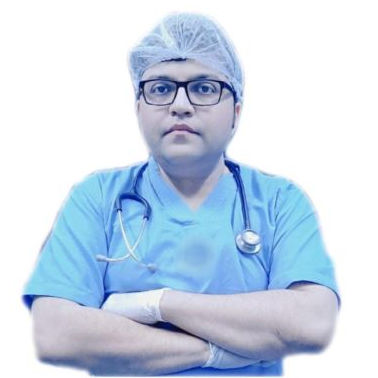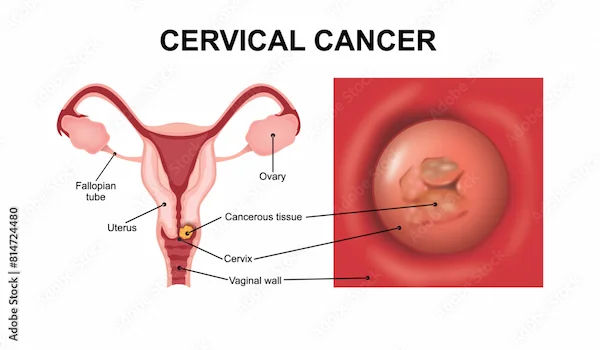Cervical Cancer Awareness Initiatives and Education
Explore key Cervical Cancer Awareness Initiatives and educational programs globally and in India. Learn how efforts like HPV vaccination drives, screening campaigns, and public health education are crucial in preventing and ultimately eliminating cervical cancer.


Introduction
Cervical cancer is one of the most preventable and treatable cancers, yet it remains a significant health concern for women worldwide. The key to reducing its impact lies in awareness, early detection, and vaccination. In this article, we’ll discuss cervical cancer, its causes, symptoms, prevention methods, and the importance of awareness initiatives in saving lives.
Understanding Cervical Cancer
Cervical cancer develops in the cervix, the lower part of the uterus that connects to the vagina. It is primarily caused by persistent infection with certain types of human papillomavirus (HPV), a common sexually transmitted infection. While most HPV infections clear up on their own, some high-risk strains can lead to cervical cancer over time if left untreated.
Symptoms of Cervical Cancer
In its early stages, cervical cancer may not show noticeable symptoms. However, as the disease progresses, women may experience:
Abnormal vaginal bleeding (after intercourse, between periods, or after menopause)
- Unusual vaginal discharge (watery, bloody, or foulsmelling)
- Pelvic pain or discomfort during intercourse
- Painful urination or frequent urination
If you notice any of these symptoms, consult a doctor promptly. Early detection significantly improves treatment outcomes.
Prevention and Early Detection
The good news is that cervical cancer can be prevented through vaccination, regular screening, and healthy lifestyle choices.
1. HPV Vaccination
The HPV vaccine is highly effective in preventing infections from the most dangerous HPV strains that cause cervical cancer. It is recommended for:
- Girls and boys aged 9–14 years (two doses)
- Women up to age 26 and men up to age 21 (if not vaccinated earlier)
- Some adults up to age 45, based on doctor’s advice
- Vaccination is a powerful tool in reducing cervical cancer cases globally.
2. Regular Screening (Pap Smear & HPV Test)
Screening helps detect precancerous changes early. Two common tests are:
- Pap Smear (Pap Test): Checks for abnormal cervical cells.
- HPV Test: Detects high-risk HPV strains.
- Guidelines for screening:
- Women aged 21–29: Pap test every 3 years.
- Women aged 30–65: Pap test + HPV test every 5 years (or Pap test alone every 3 years).
- Women over 65: May stop screening if previous results were normal.
3. Safe Sexual Practices
Since HPV spreads through sexual contact, practicing safe sex (using condoms) and limiting sexual partners can reduce infection risks.
4. Quit Smoking
Smoking weakens the immune system, making it harder for the body to fight HPV infections, increasing cervical cancer risk.
Consult Top Physician
Cervical Cancer Awareness Initiatives
Many organizations and governments run awareness campaigns to educate women about cervical cancer prevention. Some key initiatives include:
- National and global vaccination programs (e.g., HPV vaccine drives in schools).
- Free or subsidized screening camps for early detection.
- Public awareness campaigns (TV, social media, community workshops).
- Mobile health clinics for rural and underserved areas.
Why Awareness Matters:
- Many women are unaware of HPV and cervical cancer risks.
- Early screening can prevent cancer before it develops.
- Vaccination can protect future generations.
What You Can Do?
Things to do:
1. Get Vaccinated – If you or your children are eligible, talk to a doctor about the HPV vaccine.
2. Schedule Regular Screenings – Don’t skip Pap smears or HPV tests.
3. Educate Others – Share information with friends and family.
4. Support Awareness Campaigns – Participate in or promote cervical cancer awareness programs.
Take Action Today
If you haven’t been screened or vaccinated yet, take the first step toward prevention. Early action can save lives.
Book a cervical cancer screening or HPV vaccination today through Apollo 24|7. Our experts are here to guide you with compassionate care and the latest medical advice.
Final Thoughts
Cervical cancer is largely preventable, yet thousands of women lose their lives to it every year due to lack of awareness. By spreading knowledge, encouraging vaccinations, and ensuring regular screenings, we can work towards eliminating this disease.
Stay informed, stay protected, and help others do the same. Together, we can make cervical cancer a thing of the past.
Would you like to schedule a screening or consultation? Visit Apollo 24|7 today and take charge of your health!
Consult Top Physician
Consult Top Physician

Dr. Aakash Garg
Gastroenterology/gi Medicine Specialist
12 Years • MBBS, DNB (Medicine), DrNB (Gastroentrology).
Bilaspur
Apollo Hospitals Seepat Road, Bilaspur
(150+ Patients)

Dr. S Vijayaraghavan
General Physician/ Internal Medicine Specialist
31 Years • MD (Gen. Med.)
Chennai
Apollo Speciality Hospitals OMR, Chennai
(175+ Patients)

Dr. Kumudha Ravi Munirathnam
General Physician/ Internal Medicine Specialist
18 Years • MBBS, DNB (Int Med.), PGD (Diabetology), MNAMS
Chennai
Apollo Speciality Hospitals OMR, Chennai
(200+ Patients)

Dr. Utsa Basu
Diabetologist
14 Years • MBBS , MD
Barasat
Diab-Eat-Ease, Barasat
(75+ Patients)

Dr. Ashita Kuruvilla
General Physician/ Internal Medicine Specialist
7 Years • MBBS
East Midnapore
VIVEKANANDA SEBA SADAN, East Midnapore
Consult Top Physician

Dr. Aakash Garg
Gastroenterology/gi Medicine Specialist
12 Years • MBBS, DNB (Medicine), DrNB (Gastroentrology).
Bilaspur
Apollo Hospitals Seepat Road, Bilaspur
(150+ Patients)

Dr. S Vijayaraghavan
General Physician/ Internal Medicine Specialist
31 Years • MD (Gen. Med.)
Chennai
Apollo Speciality Hospitals OMR, Chennai
(175+ Patients)

Dr. Kumudha Ravi Munirathnam
General Physician/ Internal Medicine Specialist
18 Years • MBBS, DNB (Int Med.), PGD (Diabetology), MNAMS
Chennai
Apollo Speciality Hospitals OMR, Chennai
(200+ Patients)

Dr. Utsa Basu
Diabetologist
14 Years • MBBS , MD
Barasat
Diab-Eat-Ease, Barasat
(75+ Patients)

Dr. Ashita Kuruvilla
General Physician/ Internal Medicine Specialist
7 Years • MBBS
East Midnapore
VIVEKANANDA SEBA SADAN, East Midnapore




